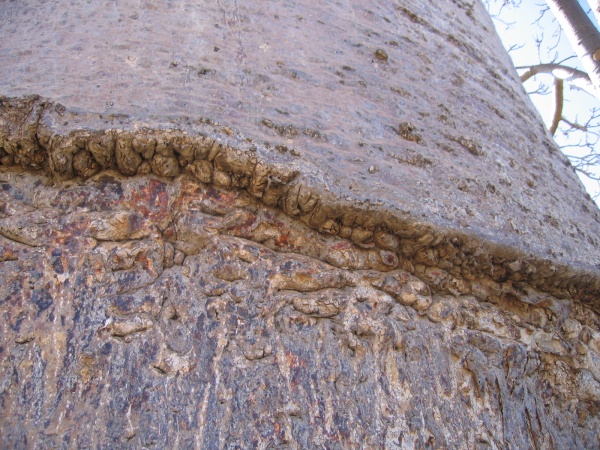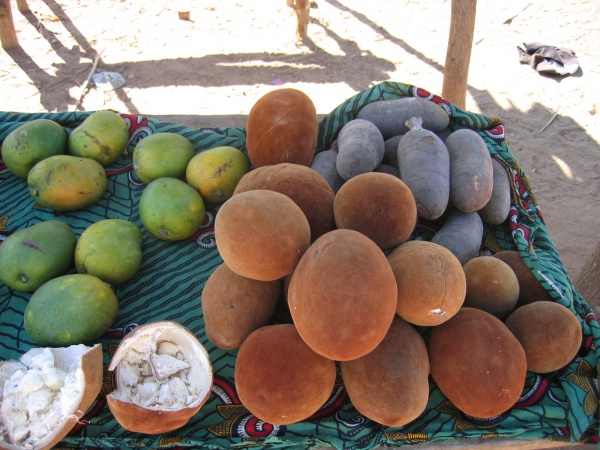Difference between revisions of "Baobab tree"
From MadaCamp
CampMaster (talk | contribs) |
|||
| Line 6: | Line 6: | ||
[[File:Morondava 0030.jpg|600px]] | [[File:Morondava 0030.jpg|600px]] | ||
| + | |||
| + | There are six baobab species endemic to Madagascar: | ||
| + | |||
| + | '''Grey baobab'''<br> | ||
| + | * Scientific name: ''Adansonia madagascariensis''<br> | ||
| + | * Malagasy name: Zà-Reniala<br> | ||
| + | * stated as "lower risk/near threatened" in The IUCN Red List of Threatened Species | ||
| + | |||
| + | .<br> | ||
| + | .<br> | ||
| + | . | ||
== Additional information == | == Additional information == | ||
Revision as of 07:04, 2 April 2017
The baobab is the national tree of Madagascar. Some baobabs are reputed to be many thousand years old, although as the wood does not produce annual growth rings, this is impossible to verify. Few botanists believe these claims of extreme age and existing evidence suggests they rarely exceed 400 years.
The Malagasy baobab is an important component of the Madagascar dry forests. The baobab is occasionally said to be an upside down tree, and according to Arabic legend, it was the devil who pulled out the tree and planted it upside down.
There are six baobab species endemic to Madagascar:
Grey baobab
- Scientific name: Adansonia madagascariensis
- Malagasy name: Zà-Reniala
- stated as "lower risk/near threatened" in The IUCN Red List of Threatened Species
.
.
.
Additional information
- Baobab Avenue
- BAOBAB, the "Good Giant" A small factsheet from Chocolat Bernrain AG.
- Baobab info-graphic


